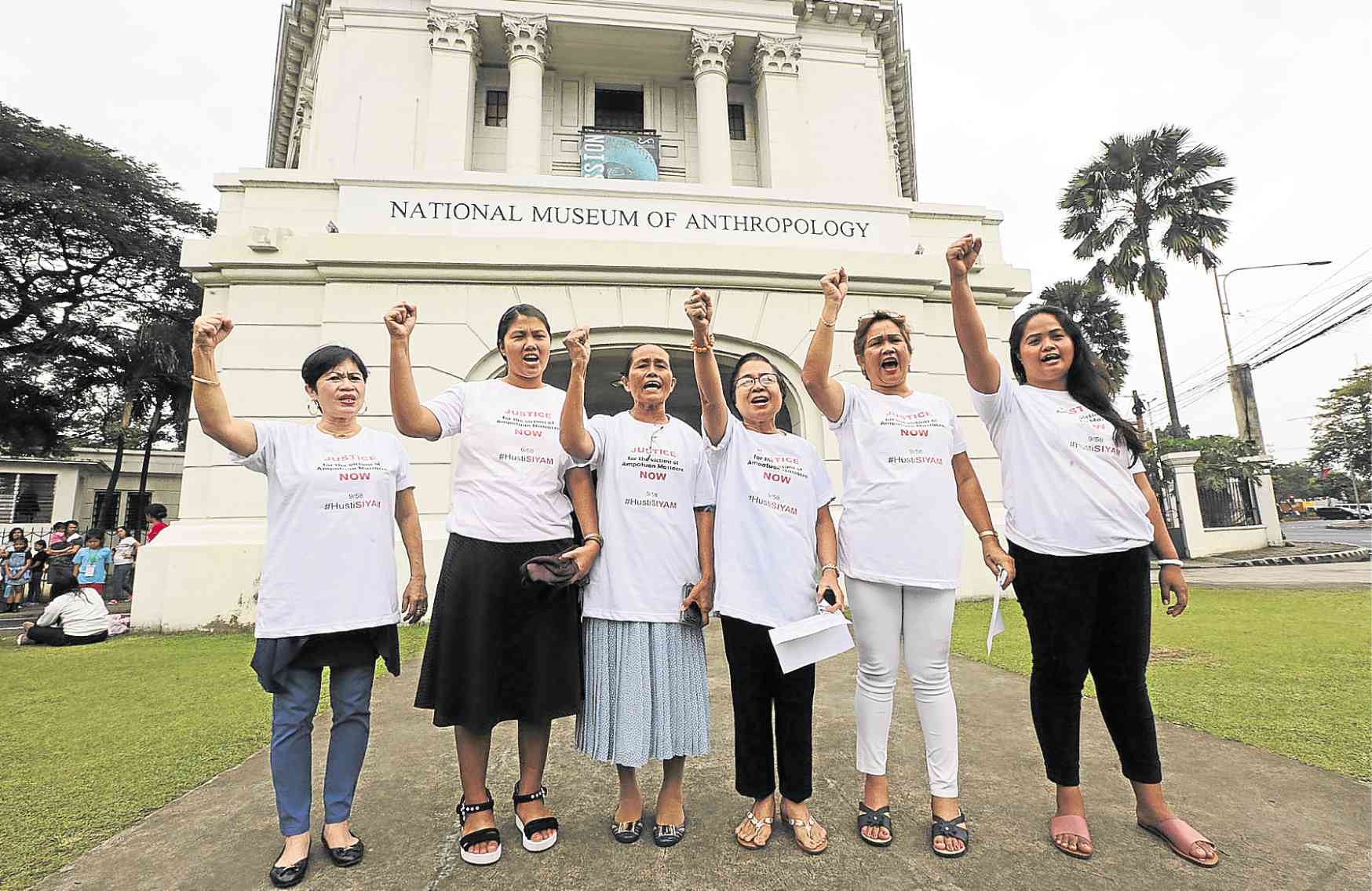Roque sees conviction vs Maguindanao massacre suspects

SOLIDARITY STAND Ramonita Salaysay (left), Erlyn Umpad, Juliet Evardo, Cipriana Gatchalian, Noemi Parcon and Jergin Malabanan, whose loved ones were among the 58 people killed in Ampatuan, Maguindanao, on Nov. 23, 2009, raise their fists in solidarity at the National Museum on Thursday, the eve of the ninth anniversary of the massacre. —GRIG C. MONTEGRANDE
Former Presidential Spokesperson Harry Roque on Friday expressed optimism that the court would rule against the suspects of the gruesome Maguindanao massacre.
Roque, a former legal counsel of the families of the victims of the 2009 massacre, made the statement to mark the ninth anniversary of the killings where 58 persons, including 32 journalists, were killed in an ambush.
“I am confident that the court’s verdict will be on our side this time and that the cruel fate the victims suffered will not go unpunished,” Roque said.
This came after the Department of Justice (DOJ) recently announced that the multiple murder case against the perpetrators of the mass killing, which include Akmad Ampatuan Sr and Anwar Ampatuan Sr., was finally submitted for resolution to Branch 221 of the Quezon City Regional Trial Court.
“This is a welcome development. Nine years is a long time to try a case, and an even longer time to wait for justice,” the former human rights lawyer said.
Article continues after this advertisement“I commend the prosecutors who worked stubbornly and ceaselessly on this case, as well as the families of the victims who have waited in suspended agony for justice to be done,” he added.
Article continues after this advertisementHowever, Roque, who is also gunning a Senate seat in the 2019 midterm elections, lamented the slow justice system in the country
“While I am gratified that we seem to be nearing the end of this fight, the glacial pace of court proceedings should not be the norm,” he said.
Roque said if he gets elected to the Senate next year, he would push for a legal system where judges are more proactive in investigating cases under them so that justice is served faster.
“As part of my legislative agenda, should I be elected to the Senate, I will push for an inquisitorial legal system, where judges actively investigate the facts of the cases,” he said.
“In our current adversarial system, judges passively receive evidence and act as impartial referees between the prosecution and defense,” he added.